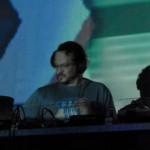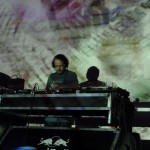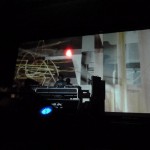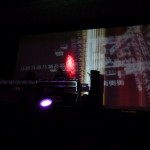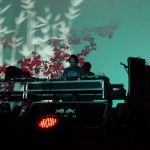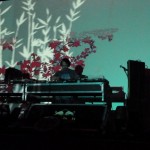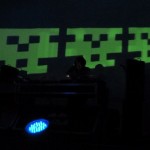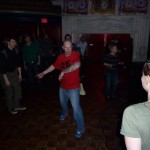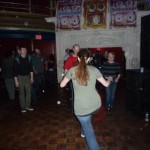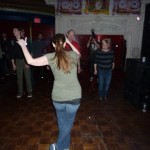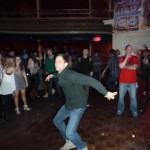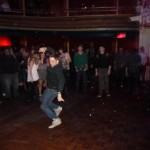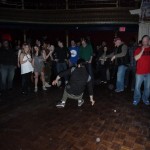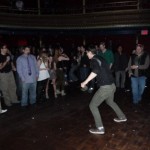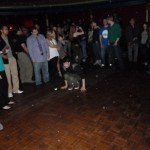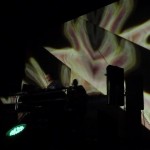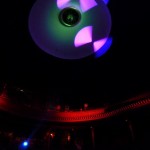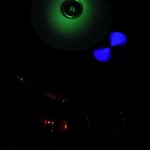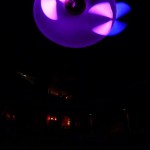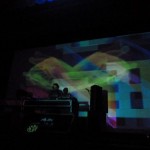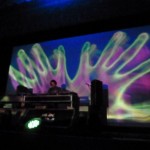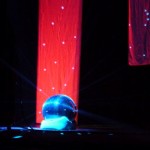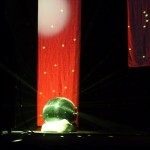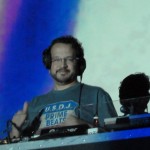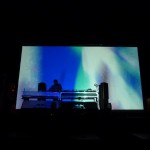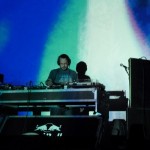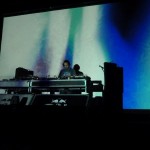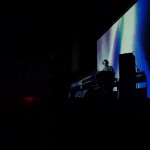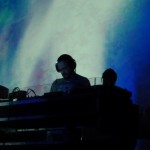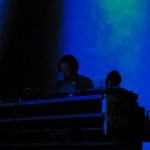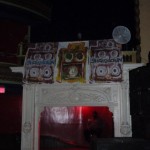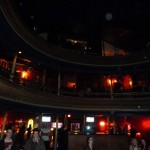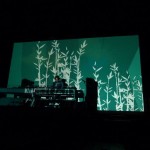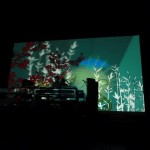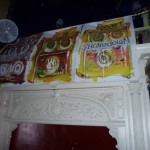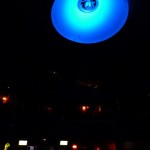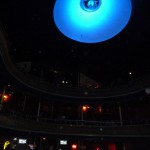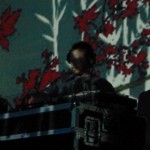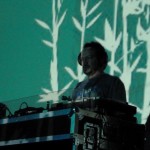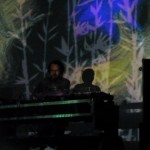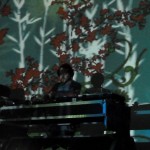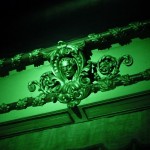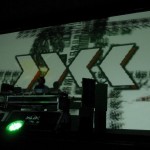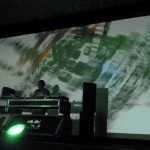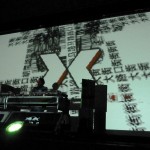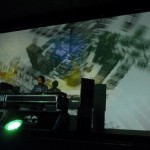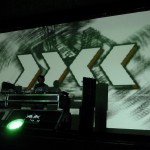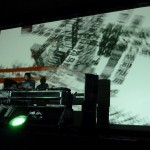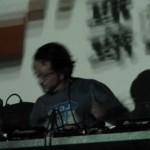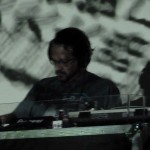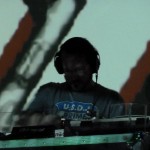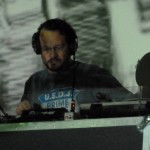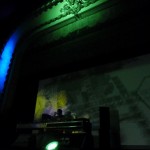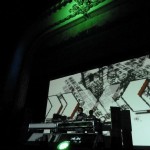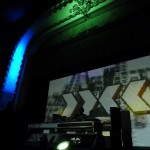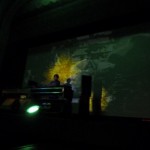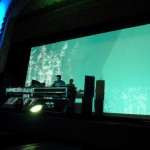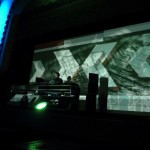Stopping Time with Mark Farina: An Exploration into Mushroom Jazz
Check out this amazing look into Mark Farina’s revolutionary Mushroom Jazz in this interview and recap of this gig all taking place on 3.9.2013 at The Trocadero in Philly.
Words By: Steve Ledgers
Photos By: Ali Kramen
Last Saturday, at two in the morning, I left the Trocadero in Philly shaken and amused, yet so very much alive–a severe contrast to when I had arrived. Upon first getting to the show, I had been curious, nervous, and drained of life. I had no idea what was to come out the venue’s 11th Anniversary Shakedown, which was a gathering of electronic music featuring the sounds of Mark Farina, Doc Martin, Rob Paine and Willyum, DJ Dennis, and Carl Michaels. The force driving my curiosity, however, undeniably stemmed from the artist who stood in my spotlight, the Pied Piper of Chicago house music himself, Mark Farina, also the originator of the electronic sub-genre, mushroom jazz.
After entering the venue at nine that evening, time stopped, and I dove into the sea of Mark’s mushroom jazz, became suspended in music so liquid in both sound and feeling, all I could do was smile. He was the first person to hit the stage, opening for the legendary Doc Martin, and definitely solidified the tone for the evening.
During the first twenty minutes, there weren’t a lot of people gracing the floor with their dancing feet. But, as his set progressed, a crowd formed. The cool, downtempo, funky, gangster jazz caught the attention of those in attendance, and they ultimately couldn’t help themselves. I know I couldn’t. I’m a sucker for ‘90s-style hip-hop and everything jazz, and the genre indigenous to Mark is a smooth blend of both.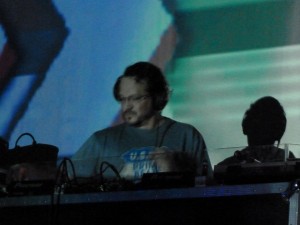
At first, he was simply getting the crowd acclimated to the setting, preparing us for the house music he would eventually throw down. And like my nickname suggests, Mark played to the crowd. The more people that succumbed to his spell, the more he molded the music to what he felt were their needs, slowly increasing the tempo. This concept is a focal point in his music, what he strives to do in his sets, and he in no way, shape, or form, disappointed.
It’s been a long time since I’ve heard electronic music that good. Countless times I found my back to the stage-right speaker, lost in a world of vibrational bliss, watching the crowd move, seemingly together as a whole, rising and falling with the emotional spectrums coming out of the speakers in the form of energy, vibration, and frequency.
Watching Mark entertain was as much a pleasure as it was to dance. He was such an animated guy, just as into the music as we were, smiling all the while, occasionally bobbing his head or taking a moment to dance or to guide us with an inviting hand toward a new track and bass-line. His passion for the music was beyond obvious.
The set lasted just over two hours, and after he was finished, I had a chance to talk with him backstage in a small box of a room attached to the Trocadero’s greenroom.
We sat near a table, and the four pale yellow walls of the room provided a sense of history, as did every aspect of the vintage burlesque theatre. And though the space was limited, I felt comfortable. “Mark,†I said, “thank you for taking the time to sit down and talk to me. Questions aside, I’ve been a fan of yours for almost a decade.â€
“No, thank you,†he said, in his somewhat raspy voice. “You are the reason I do what I do.â€
We shook hands, and he then proceeded to give me a hug.
“Foreal,†I said, “back in 2004, I used to listen to NPR at night. From midnight until six in the morning, they would broadcast a special called ‘Jazz after Hours.’ That’s when I first heard your music. One night, they threw on a mushroom jazz mix, and ever since then, I’ve been hooked. This is the first time I’ve been able to see you live. Your set was fantastic. I’m happy to have made the show.â€
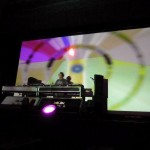 He smiled and appeared to settle more into his skin. “That’s awesome to hear. No, seriously, thank you. I saw you out there, I saw you dancing. I was trying to get your attention. I kept thinking to myself, ‘I hope he likes what I’m playing.’ I was trying to get you to dance.â€
He smiled and appeared to settle more into his skin. “That’s awesome to hear. No, seriously, thank you. I saw you out there, I saw you dancing. I was trying to get your attention. I kept thinking to myself, ‘I hope he likes what I’m playing.’ I was trying to get you to dance.â€
“Well, you had me dancing the entire time,†I said, then laughed. “Your house and mushroom jazz mixes are the reason I got into electronic music. It opened my eyes to a plethora of artists and styles, ranging from downtempo to chill, glitch, trip-hop, acid jazz, nuJazz, ambient, all the way to house, what you’re known for. It wasn’t long before I discovered these styles were my favorite kind of music. And I’m even happier now that I’ve had the chance to see you spin.â€
“Thank you for coming out,†he said, shaking my hand again. “You’re very welcome. I’m glad you liked it.â€
“And speaking of house,†I said, pulling out my pocket-sized notebook and readying my pen, “what was it like exploring the electronic music scene in Chicago in the late ‘80s, early ‘90s?â€
“Not that difficult,†he said, nostalgia etched on his face. “It was a real pleasure. Chicago, from ’86 to about ’89, was the era for this kind of music.â€
“Would you say it was something you just kind of stumbled into? Being so exposed to this kind of music? Or was spinning house already a passion of yours?â€
“I don’t know if I would say stumbled into it. It was definitely passion, but, maybe, more a geographical thing. I was very fortunate to be there. I was in the right place at the right time. It was a neat place to be. At the time, house was the thing, the music, the culture. It was everywhere.†His voice took on more of a dreamy tone. “I think, maybe, it was meant to be? I don’t know, but I’m happy I was there.â€
I nodded. “Word, I feel that. Sounds like a very special time.
“It was.â€
“And do you think your house really shaped what eventually turned into mushroom jazz?â€
“No, I don’t think it did,†he said, then paused, seeming to be reliving a few certain memories. “Well, yes and no. For me, it was a whole different thing. I went to New York in ’85-86, and there, it was hip-hop in the b-room style, fused with downtempo beats. I was really attracted to that sound. Chicago didn’t want to hear it, though.â€
“No?â€
“No, they were more into the energetic stuff.†He shifted his weight. “It was more of a nod your head thing to them. Totally geographic. New York had the raw ‘90s hip-hop on the verge of happening, and Chicago was dancing to house music.â€
“Do you make a distinction between acid jazz and mushroom jazz?â€
Mark laughed and glanced at the ceiling. “That’s a good question. I don’t know. I feel very open about mushroom jazz. But it’s more about tempo. It has to be 100 to 112 beats per minute to be considered mushroom jazz. Maybe as low as 95 beats per minute.â€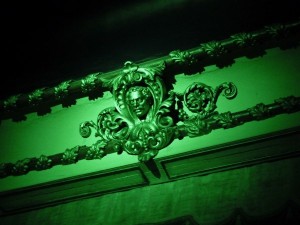
I nodded, and then we both went silent as I flicked through the pages of my notebook in search of another question. The nervous side of me wanted to hurry through my list, but he seemed to be in no rush whatsoever, very patient, content with the silence, so I supressed the urge.
Looking up, I spoke. “What are some of your biggest influences? Favorite places to play?â€
“Influences? Derrek Carter, of course, my buddy. King Britt, an old friend. There’s Miguel Migs, too, and Spinna.â€
“I’m real into Migs,†I said. “He comes up on your Pandora station all the time.â€
“He’s real good,†Mark replied. Then, a huge smile ran across his face. “And Doc Martin, opening for Doc is wonderful. Favorite places to play? Very geographical. The feeling differs from venue to venue.â€
“Geography seems to be a huge factor when it comes to your sound. As a result, do you tailor a show based on the vibe of the city, the crowd? How much do those things shape your set?â€
“It’s always about where I’m at, what the people are like, whether it’s Tucson or Phoenix or Philly. I try to think of things relevant to where I’m playing. What I play in Tucson is not what I’m going to play in Phoenix, what I play in Phoenix is not what I’m going to play in Chicago, and what I play in Chicago is not what I’m going to play in Philly, especially Philly. Philly’s a special place.â€
“Geographical.â€
“Yep.â€
“And just how much of your set is pre-determined?†I said. “How much is improvised?â€
He tilted his head, cheeks sagging, and gave me a dark look. “No, I’m not sure what–â€
“As in, do you come to the show with an idea of tracks and artists you want to play? A plan? Or is it all done right there on the spot?â€
He nodded as understanding crept across his face in the form of another scorching smile. “It’s always on the spot. Nothing’s planned. I don’t even know where I’m starting or finishing. I don’t think about it. It’s all about the moment. I’m a moment person. When you feel it, you feel it.â€
“Without a doubt,†I said. “The way you transitioned from your mushroom jazz into your infamous house as more and more people started hitting the floor was seamless. You could really see just how aware of the vibe, of the crowd, you were. The moment is definitely important to you. So, does that affect your creative process at all? When you start getting ready to produce a track at home, or even preparing for a show?â€
“I just try to bring the proper funk. It’s usually all timing,†he said. “Definitely a state of mind thing.
“And finally, one last question.â€
“No problem.†His calm demeanor made it seem as if he would have been cool with sitting here talking to me all night.
I asked, “What inspires you?â€
His eyes lit up as he leaned forward, gesturing as he spoke. “New music, anything that’s new, even if I’m hearing music all the way from Kazakhstan to Chicago. That’s why I do what I do. That’s what really gets me going. I’m always looking for new stuff, new sounds. And then I try to pass on the good shit to people who haven’t heard it yet, try to turn them on to something good.â€
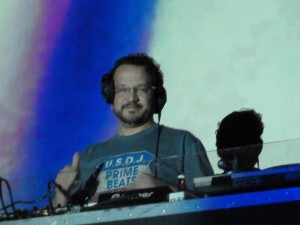 After he finished talking, I stood and once again said my thanks, then shook his hand. We said our goodbyes, and he gave me another big hug before I left to head outside to smoke a cigarette and absorb the conversation, to make sense of everything.
After he finished talking, I stood and once again said my thanks, then shook his hand. We said our goodbyes, and he gave me another big hug before I left to head outside to smoke a cigarette and absorb the conversation, to make sense of everything.
Honestly, it was extremely difficult for me to conceptualize the whole thing. I had just picked the brain of a man who has travelled the world sharing his music, moving crowds in London, Tokyo, San Francisco, Chicago, and in Philly, a man who has been spinning for the better part of two decades, who even pioneered a unique style of music. I needed to gather my thoughts. A voice in my mind kept telling me it should have been harder than it had been, that Mark should have been more of a demi-god in presence than the humble, down to earth, comfortable man he actually turned out to be.
Once outside in the cool air, in the dull city glow of Philly, I lit my cigarette, and puffed on it in silence for a while, as the sounds of passing cars, the chatter of people, swirled around me. I mulled over what he had said, considered the apparent role of his mood, his state of mind, the effect of geography–how it all applied to his music. And I could pinpoint the moments in the set where he moderated the tempo to fit the overall mood of the crowd, his execution so on point. Then it hit me, and one thing really stuck in my mind, something that embodied everything about his sets, about his personality, about his sound: “When you feel it,†he had said, “you feel it.â€
And I couldn’t have agreed more.

